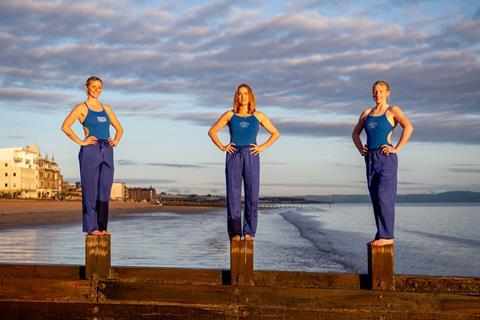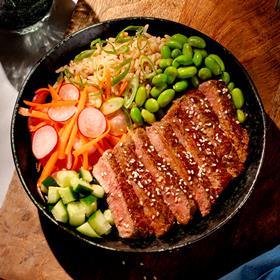Independent research commissioned by Quality Meat Scotland’s (QMS) Make it Scotch has found that almost half (45%) of Scottish women are ‘not confident’ or ‘unsure’ whether their diet provides enough iron to support their energy levels and overall good health in daily life.

QMS found that average red meat intakes in Scotland were now below the daily 70g limit set by Government, with women having “significantly lower” red meat intakes compared with men.
Iron plays a “vital role” in maintaining energy levels, whether it’s to face the morning chaos of the school run or to fuel a workout in the gym, said QMS. It enables the body to release energy from food, supports the production of red blood cells that transport oxygen around the body, and helps keep the immune system functioning effectively. The research found that without sufficient iron, fatigue can set in, endurance can drop, and recovery can take longer – affecting performance in sport and in everyday routines.
In the survey, 93% of women recognised tiredness and low energy as key signs of iron deficiency but were less familiar with some of the other symptoms, such as shortness of breath, headaches and brain fog or difficulty concentrating. Whilst some awareness exists, the uncertainty around intake suggests many may still be falling short.

More than half (56%) said they’d consider upping their red meat intake to help fight fatigue. QMS said that Scotch Beef is a “rich natural source of iron that is more easily absorbed by the body” than iron from plant sources. Thanks to the “Iron Plus” effect, said QMS, eating fresh red meat alongside other foods such as beans, lentils and greens can even help the body absorb more iron from them.
To help raise the profile and importance of iron in the female diet during Iron Awareness Week, Make it Scotch brought together three women on Portobello Beach: Scottish swimming ace Lili Mundell, PE teacher and aquathlon competitor Rachel Fraser, and best‑selling author and one of the UK’s top five super-nutritionists Amanda Hamilton - all united in their passion for sport, endurance and good nutrition.
“Choosing natural sources of iron, such as Scotch Beef, can make a real difference.”
Amanda Hamilton, author and nutritionist
Discussing the importance of iron in maintaining energy and performance, Hamilton highlighted how easily low iron levels can go unnoticed: “Iron plays a crucial role in energy production and daily wellbeing. Fatigue can creep in so gradually that it becomes the ‘new normal’ – but it doesn’t have to be that way.
“Choosing natural sources of iron, such as Scotch Beef, can make a real difference. During World Iron Awareness Week, we want to inspire women to think about what’s on their plate and how it fuels them. Small changes can make a big difference.”
Mundell commented: “Swimming is all about speed and endurance. Without adequate iron in the body, the muscles don’t get enough oxygen, which can lead to fatigue and a lowered aerobic capacity. Low iron can cause a decrease in stamina, which can also indicate a slower recovery and lead to potential muscle cramps.
“This campaign is about showing that small changes to your diet can have a big impact on your energy and performance. Every young girl and woman should have the vitality to enjoy the things they love – whether that’s chasing a personal best time or making it through a busy training session with a smile.”
Fraser added: “As a PE teacher, I see first-hand how vital energy is for teenage girls. Yet they are often even more disproportionately affected by low iron with the national diet and nutrition study pointing to one in four women and half of teenage girls suffering iron deficiency. It can affect concentration, mood, and performance in sport and school.
“The good news is there are plenty of simple, family‑friendly ways to boost iron intake through a healthy balanced diet – Scotch Lamb and Specially Selected Pork are also excellent natural sources of haem iron, and can be used in easy, nutritious dishes that everyone at home will enjoy.”















